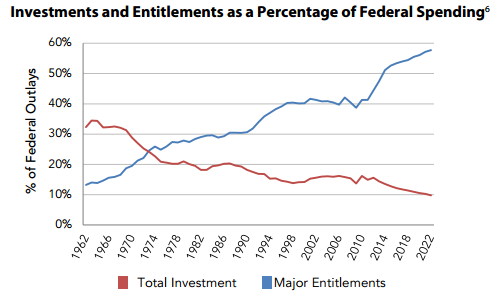Fiscal Fantasy vs. Fiscal Reality
Today in an opinion piece in The Washington Post and in a report from Third Way, Jon Cowan and Jim Kessler present an intriguing argument tackling "Four Fiscal Fantasies." They point out that our fiscal problems are still unsolved and push back against those who claim we have done enough to tackle our debt and entitlement issues.
They argue that the case waiting on entitlement reform and debt reduction or forgoing it all together relies on these four fiscal fantasies:
- Taxing the rich solves our problems.
- "We can have it all" - a bigger safety net and more investments that spur growth and opportunity.
- A delay on entitlement fixes is benign for the middle class.
- The politics to fix entitlements will get better.
They note that the problem over the long term is much too large to be solved without entitlement reform.
If we leave entitlements on auto-pilot in this scenario, our deficit in 2030 will be close to a stunning $1.3 trillion, in 2013 inflation-adjusted dollars. Thus, the belief that we can solve our long-range deficit problem by taxing the wealthy alone is a fantasy. We can solve some of the problem this way, but that’s about it.
On the second myth, the trend for entitlement spending and investment spending is portrayed in the graph below. The effects of such drastic increases in entitlement expenditures will likely lead to the crowding out of public and private investment.

Source: Third Way
Third, they argue acting now will allow these policies to be gradually phased in over time as opposed to the abrupt and unpalatable policy changes in the future that will be necessary. The Social Security trust fund, for example, is scheduled to become insolvent by 2033. Waiting until then to make changes necessarily makes them need to be larger and takes away the option of phasing in changes or exempting current or near-retirees. Thus, we should be making an effort to be proactive because the longer we wait to reform entitlements, the harder it will be.
As we can see, the government continues to face very real fiscal problems. Waiting to solve these issues will only close off options and make the necessary adjustments more abrupt and less targeted.
Click here to read the full report.